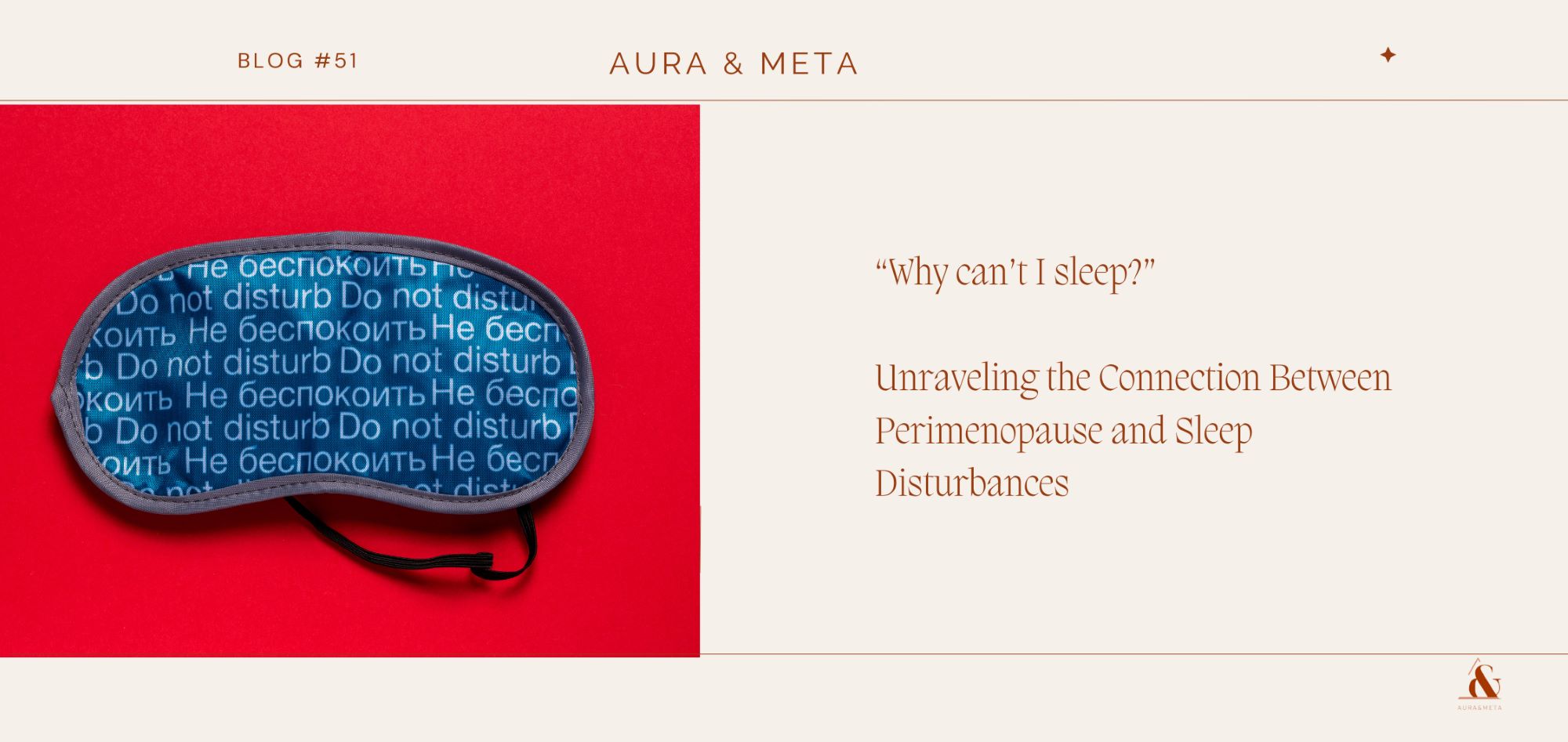Are you in your 30s or 40s and finding it increasingly difficult to get a good night’s sleep? You’re not alone. As women approach perimenopause, many begin to experience sleep disturbances that can significantly impact their quality of life. But why does this happen, and what can be done about it?
Understanding the Hormonal Shifts During Perimenopause
During perimenopause, the body undergoes significant hormonal changes, particularly in oestrogen and progesterone levels. These hormones play a crucial role in regulating sleep, mood, and overall well-being. Oestrogen, for example, helps to regulate the body’s use of serotonin, a neurotransmitter that promotes healthy sleep patterns and a stable mood. As oestrogen levels fluctuate and eventually decline during perimenopause, many women experience disruptions in their sleep.
Similarly, progesterone has a calming effect on the brain and helps induce sleep. A decrease in progesterone levels can lead to difficulty falling asleep or staying asleep through the night. These hormonal shifts are natural but can cause significant distress, leading to chronic sleep disturbances.
The Impact of Hormonal Changes on Blood Sugar Levels and Sleep
Another critical factor to consider is the relationship between hormonal changes and blood sugar levels. Oestrogen plays a role in insulin sensitivity, helping to regulate blood sugar. When oestrogen levels drop, as they do during perimenopause, women may experience fluctuations in blood sugar levels. This can lead to nighttime awakenings and difficulty maintaining a stable sleep pattern.
Insulin resistance, a condition more common as women age, can also be exacerbated by these hormonal changes. High blood sugar levels can lead to increased cortisol production, a stress hormone that can further disrupt sleep. Therefore, maintaining balanced blood sugar levels is crucial for improving sleep quality during perimenopause.
The Role of Functional Testing: The DUTCH Test
To effectively address sleep disturbances during perimenopause, it’s essential to understand where you stand hormonally. The DUTCH (Dried Urine Test for Comprehensive Hormones) test is an advanced functional testing tool that provides a comprehensive analysis of your hormone levels, including oestrogen, progesterone, cortisol, and melatonin. This test can help identify imbalances that may be contributing to your sleep issues and guide the development of a personalized treatment plan.
At Aura & Meta, we offer the DUTCH test as part of our comprehensive functional testing services. By assessing your hormone levels, we can develop targeted strategies to help you restore balance and improve your sleep quality. https://aurameta.com/functional-testing/#Dutch-Test
Strategies for Better Rest During Perimenopause
- Dietary Adjustments:
- Focus on a diet rich in whole foods, lean proteins, healthy fats, and complex carbohydrates to maintain stable blood sugar levels.
- Incorporate phytoestrogen-rich foods such as flaxseeds, soy, and legumes to support hormone balance.
- Limit caffeine and alcohol, as these can exacerbate sleep disturbances.
- Stress Management Techniques:
- Practice mindfulness, meditation, or yoga to help reduce stress and cortisol levels.
- Establish a regular bedtime routine to signal your body that it’s time to wind down.
- Consider deep breathing exercises or progressive muscle relaxation before bed to promote relaxation.
- Lifestyle Changes:
- Engage in regular physical activity, such as walking or swimming, to help regulate hormones and improve sleep.
- Ensure your sleep environment is conducive to rest—keep your bedroom cool, dark, and quiet.
- Avoid large meals, caffeine, and nicotine before bed.
Perimenopause can bring about significant changes that disrupt your sleep, but understanding the root causes provides a pathway to better rest. Through functional testing like the DUTCH test and targeted dietary and lifestyle changes, women can regain control over their sleep patterns and overall well-being. At Aura & Meta, we specialize in helping women navigate these transitions with personalized, holistic care.
Book a consultation today to start your journey toward better sleep and renewed energy.

